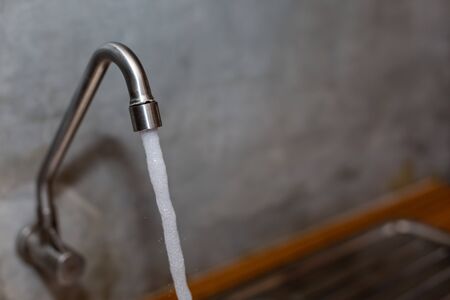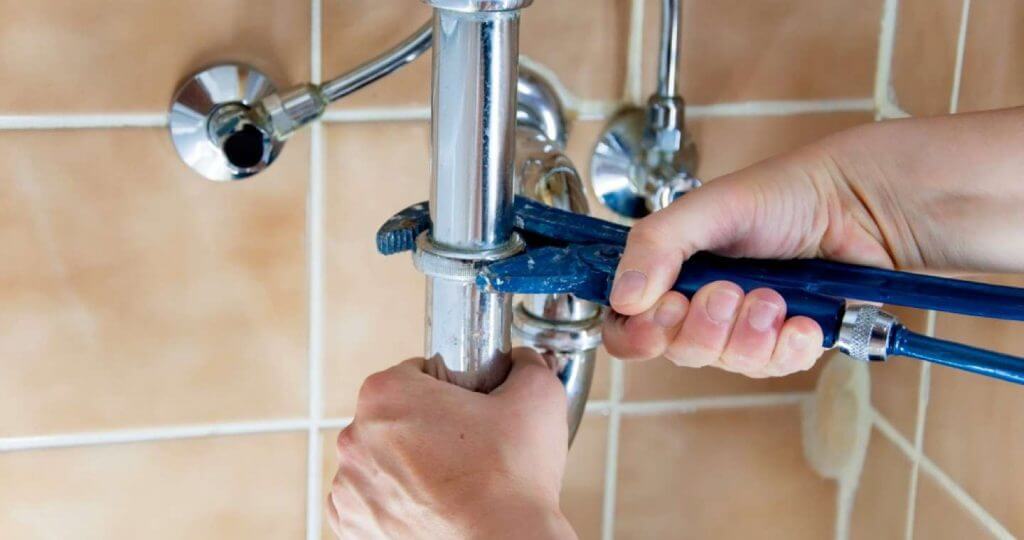Professional Tips for Resolving a Leaky Tap: Comprehensive Tutorial
Professional Tips for Resolving a Leaky Tap: Comprehensive Tutorial
Blog Article
We've come across this article involving How to Fix a Leaking Tap Without Getting Professional Help listed below on the internet and figured it made good sense to discuss it with you on this site.

Intro
A leaking faucet is not only irritating yet can likewise waste a considerable quantity of water and result in increased energy bills. In this detailed guide, we'll stroll you through the procedure of taking care of a dripping tap, enabling you to conserve water and cash while keeping your plumbing system.
Gathering Tools and Materials
Prior to you start, gather the necessary tools and materials for the fixing. You'll usually require an adjustable wrench, screwdrivers, replacement washers or seals, plumber's tape, and a cloth or towel to clean up any type of spills.
Shutting Off Water
Locate the shut-off shutoff for the affected tap and transform it clockwise to shut down the water. If you're unable to locate the shut-off shutoff, you may require to shut down the primary water to your home.
Dismantling the Faucet
Use a screwdriver to eliminate the handle of the faucet, subjecting the interior parts. Relying on the kind of faucet, you might need to loosen a cap or collar to access the shutoff setting up.
Examining for Damages
As soon as you have actually subjected the valve assembly, examine it for any type of indicators of damages or wear. Typical perpetrators of a leaking tap consist of worn-out washers, O-rings, or seals.
Replacing Faulty Components
If you identify any type of damaged or damaged parts, carefully remove them utilizing a wrench or pliers and change them with new ones. Make sure to utilize the proper dimension and type of substitute parts for your faucet.
Rebuilding the Tap
After replacing the malfunctioning elements, meticulously reconstruct the faucet in the reverse order of disassembly. Ensure that all parts are appropriately aligned and tightened up to prevent future leakages.
Evaluating for Leaks
As soon as the faucet is reassembled, turn the supply of water back on and check the tap for leakages. If you see any type of leakages, double-check the connections and tighten them as required.
Making Sure Correct Capability
After verifying that the faucet is leak-free, test its functionality by turning it on and off numerous times. Ensure that the tap operates efficiently and without any unusual sounds or resistance.
Tidying up
Lastly, tidy up any particles or spills from the repair process and throw away any kind of old or broken components properly. Leaving the workplace spick-and-span guarantees a professional coating to your fixing.
Final thought
Fixing a dripping tap is a reasonably basic DIY job that can save you cash on water costs and prevent more damage to your plumbing system. By following this detailed guide, you can deal with the fixing with confidence and appreciate the benefits of a leak-free tap.
Fixing a Leaking Tap: Causes, Solutions, and Water Conservation
Causes and Signs
Worn-Out Washers: The tap washer, rubber or metal, creates a seal within the tap assembly. Over time, the old washer can deteriorate, leading to water seepage and a dripping tap. High Water Pressure: Excessive water pressure can strain tap components, causing leaks. The forceful water flow exerts pressure on the washers and other sealing mechanisms, resulting in a dripping tap. Faulty O-Rings: O-rings, usually made of rubber, provide a watertight seal between moving parts of the tap. If the O-rings become worn or loose, they can cause water to leak, resulting in a dripping tap and potential water damage to your property. Signs of a Dripping Tap
Audible Dripping Sounds: If you hear the sound of water droplets hitting the sink or basin, it’s a clear indication of a dripping tap. Puddles or Stains: Notice any puddles of water or stains around the tap area or on the sink surface. These signs suggest a dripping tap that requires attention. Reduced Water Flow: A dripping tap can affect the overall water flow, resulting in reduced pressure when using the tap. Gather the Necessary Tools
Adjustable spanner Screwdriver – flathead or Philips’s head New washers Towels or rags Turn Off the Water Supply
Find the isolation valve beneath the sink or by the tap and turn it clockwise to shut off the water supply.
Disassemble the Tap
Use a screwdriver to carefully remove the tap handle, exposing the internal components. Take note of the order and arrangement of the parts as you disassemble the tap. This will aid in reassembling it correctly later on. (We recommend taking photos on your phone for a no-fuss solution).
Inspect and Replace the Washer
Inspect the washer located at the bottom of the tap assembly. If it appears worn out or damaged, replace it with a new washer of the correct size and type. This simple replacement can often resolve the dripping tap issue.
Tips for Responsible Water Usage
Regular Inspection and Maintenance: Conduct periodic inspections of all taps in your home to identify potential leaks or drips. Timely repairs prevent water wastage and maintain the efficiency of your plumbing system. Install Water-Efficient Taps: Consider replacing old taps with water-efficient models that are designed to minimise water consumption. Look for taps equipped with aerators and flow restrictors to regulate water flow without compromising functionality. Conscious Water Usage: Develop mindful habits such as turning off the tap while brushing your teeth or soaping your hands. Additionally, use full loads when running dishwashers and washing machines to maximise water efficiency. Monitor Your Water Bill: Keep track of your water consumption by regularly monitoring your water bill. Any sudden increases may indicate a leaking tap or other issues that require attention. When to Seek Professional Help
Persistent Leaks: If your attempts to fix the dripping tap are unsuccessful or the problem keeps recurring, it may indicate an underlying issue that requires professional attention. Complex Repairs: In cases where the tap assembly is intricate, or the repair involves specialised knowledge, it’s advisable to seek professional help to ensure the problem is resolved effectively. https://proudplumbingandgas.com.au/blog/a-complete-guide-to-fixing-a-leaking-tap/

I am very interested in How to Fix a Leaking Tap Without Getting Professional Help and I really hope you enjoyed my piece. Loved our blog entry? Please quickly share it. Help somebody else check it out. We love your readership.
Click Here Report this page